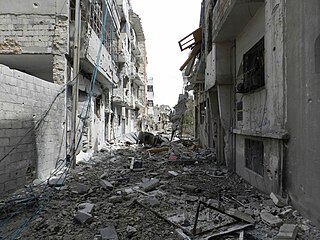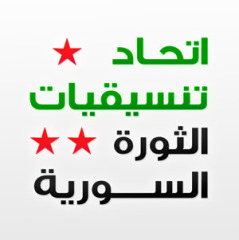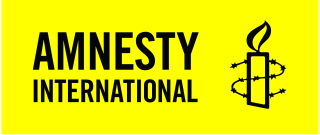One World is the largest human rights film festival in the world , held annually in Prague and other 36 cities of the Czech Republic, with a selection later shown in Brussels and other countries. The festival deals with quality documentary films on social, political, environmental, media and human rights issues. One World presents over 120 documentary films from all around the globe and organizes numerous Q&As with filmmakers and experts.

The Bahraini uprising of 2011 was a series of anti-government protests in Bahrain led by the Shia-dominant Bahraini Opposition from 2011 until 2014. The protests were inspired by the unrest of the 2011 Arab Spring and 2011–12 Iranian protests and escalated to daily clashes after the Bahraini government repressed the revolt with the support of Gulf Cooperation Council and Peninsula Shield Force. The Bahraini protests were a series of demonstrations, amounting to a sustained campaign of non-violent civil disobedience and later some violent resistance in the Persian Gulf country of Bahrain. As part of the revolutionary wave of protests in the Middle East and North Africa following the self-immolation of Mohamed Bouazizi in Tunisia, the Bahraini protests were initially aimed at achieving greater political freedom and equality for the majority Shia population, and expanded to a call to end the monarchy of Hamad bin Isa Al Khalifa following a deadly night raid on 17 February 2011 against protesters at the Pearl Roundabout in Manama, known locally as Bloody Thursday.
Protests began in Syria as early as 26 January 2011, and erupted on 15 March 2011 with a "Day of Rage" protest generally considered to mark the start of a nationwide uprising. The Syrian government's reaction to the protests became violent on 16 March, and deadly on 18 March, when four unarmed protesters and seven police were killed in Daraa.
The following is a timeline of the Syrian uprising from September to December 2011. This period saw the uprising take on many of the characteristics of a civil war, according to several outside observers, including the United Nations Commission on Human Rights, as armed elements became better organized and began carrying out successful attacks in retaliation for the ongoing crackdown by the Syrian government on demonstrators and defectors.

The Siege of Homs was a military confrontation between the Syrian military and the Syrian opposition in the city of Homs as a part of the Syrian Civil War. The siege lasted three years from May 2011 to May 2014, and resulted in an opposition withdrawal from the city.
The Rif Dimashq clashes were a series of unrests and armed clashes in and around Damascus, the capital of Syria, from November 2011 till a stalemate in March 2012. The violence was part of the wider early insurgency phase of the Syrian Civil War. Large pro-government and anti-government protests took place in the suburbs and center of Damascus, with the situation escalating when members of the Free Syrian Army started attacking military targets in November.
The following is a timeline of the Syrian Civil War from January to April 2012, during which time the spate of protests that began in January 2011 lasted into another calendar year. An Arab League monitoring mission ended in failure as Syrian troops and anti-government militants continued to do battle across the country and the Syrian government prevented foreign observers from touring active battlefields, including besieged opposition strongholds. A United Nations-backed ceasefire brokered by special envoy Kofi Annan met a similar fate, with unarmed UN peacekeepers' movements tightly controlled by the government and fighting.
Many human rights reports were published about the Bahraini uprising of 2011, a campaign of protests, and civil disobedience in the Persian Gulf state of Bahrain that is considered part of the revolutionary wave of protests dubbed the Arab Spring. At least 14 human rights reports were issued by 18 different parties: Amnesty International, International Crisis Group, Doctors Without Borders, Physicians for Human Rights, Human Rights First, Independent Irish figures, Human Rights Watch, Human Rights Without Frontiers, Bahrain Centre for Human Rights, Bahrain Youth Society for Human Rights, Bahrain Human Rights Society, Bahrain Independent Commission of Inquiry, Arabic Network for Human Rights Information, Front Line Defenders, Gulf Centre for Human Rights, Index on Censorship, International Media Support and the Writers in Prison Committee (WiPC) of PEN International.
On 6 January 2012, a bomb exploded in the Al-Midan district of Damascus, Syria. According to the Syrian government, a suicide bomber attacked buses carrying riot police shortly before an anti-government protest was to begin. It said that 26 people were killed and over 60 were injured. Most of the victims were civilians, though the Syrian government showed footage of what it claimed to be the funeral of 11 police officers killed in the attack.

The 2012 Homs offensive was a Syrian Army offensive on the armed rebellion stronghold of Homs, within the scope of the Siege of Homs, beginning in early February 2012 and ending with the U.N. brokered cease fire on April 14, 2012.
On 10 February 2012, two large bombs exploded at Syrian security forces buildings in Aleppo. According to the Syrian government and state media, the blasts were caused by two suicide car bombs. It reported that 28 people were killed and 235 wounded. The bombings took place during the Syrian Civil War and the government blamed armed opposition groups.
Medical Neutrality refers to a principle of noninterference with medical services in times of armed conflict and civil unrest: physicians must be allowed to care for the sick and wounded, and soldiers must receive care regardless of their political affiliations; all parties must refrain from attacking and misusing medical facilities, transport, and personnel. Concepts comprising the principles of medical neutrality derive from international human rights law, medical ethics and humanitarian law. Medical neutrality may be thought of as a kind of social contract that obligates societies to protect medical personnel in both times of war and peace, and obligates medical personnel to treat all individuals regardless of religion, race, ethnicity, or political affiliation. Violations of medical neutrality constitute crimes outlined in the Geneva Conventions.
The following is a timeline of the Syrian Civil War from May to August 2012. The majority of death tolls reported for each day comes from the Local Coordination Committees, an opposition activist group based in Syria, and the Syrian Observatory for Human Rights, another opposition group based in London.

The Bahrain health worker trials were a series of legal cases in which forty-eight doctors, nurses, and dentists faced charges for their actions during the Bahraini uprising of 2011. In September 2011, twenty of the health workers were convicted by a military court of felonies including "stockpiling weapons" and "plotting to overthrow the government". The remaining twenty-eight were charged with misdemeanors and tried separately. The following month, the felony sentences were overturned, and it was announced that the defendants would be retried by a civilian court. Retrials began in March 2012, but were postponed until June 14. Convictions against nine of the defendants were quashed and reduced against another nine. The Court of Cassation upheld the sentences against the remaining nine on 1 October.

Human rights violations during the Syrian civil war have been numerous and serious, with United Nations reports stating that the war has been "characterized by a complete lack of adherence to the norms of international law" by the warring parties who have "caused civilians immeasurable suffering". For the background and legal content use the prosecution of Syrian civil war criminals.

The Syrian Revolution Coordinators Union or (SYRCU) is an organization with members from different protest coordination groups from all around Syria. Its members represent their areas and cities for the activities of the Syrian uprising that began in 2011 against the Syrian government. The Syrian Revolution Coordinators Union has been active since the beginning of the revolution in peaceful resistance
The Siege of Daraa occurred within the context of Arab Spring protests in Syria, beginning on 15 March 2011, with Daraa as the center of uproar. The Syrian Army on 25 April started an eleven-day siege of the city. This harsh reaction would prove to be another step in the escalation of the Syrian conflict, that would eventually escalate into civil war.

The civil uprising phase of the Syrian Civil War, or as it was sometimes called by the media the Syrian Revolution of Dignity, was an early stage of protests – with subsequent violent reaction by the Syrian Arab Republic – lasting from March to 28 July 2011. The uprising, initially demanding democratic reforms, evolved from initially minor protests, beginning as early as January 2011 and transformed into massive protests in March.
From 1964 until 2011, the State of Emergency Law in Syria allowed government forces to arbitrarily detain political suspects at will for unlimited duration of time. During this time, tens of thousands have reportedly been arrested, tortured, and held in isolation for months to years without charge or trial. Although the state of emergency was lifted in 2011 at the outbreak of the Syrian Civil War, arrests continue. Civil society activists, media workers, and medical and humanitarian workers have reportedly been targeted by government forces, pro-government militias, and increasingly by non-state armed groups.
The following is a timeline of the Syrian Civil War from August to December 2015. Information about aggregated casualty counts is found at Casualties of the Syrian Civil War.








